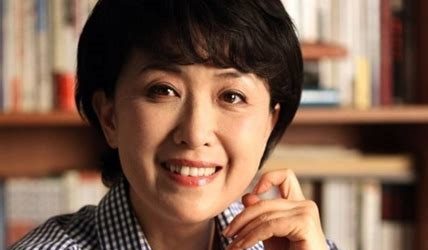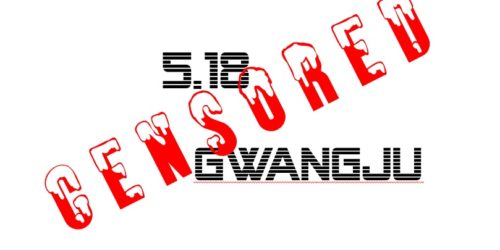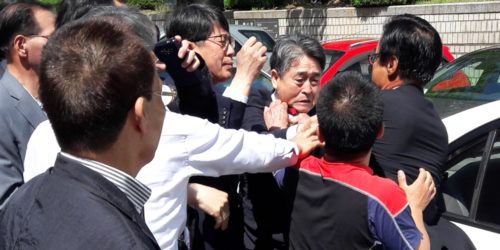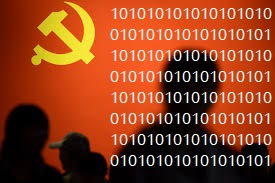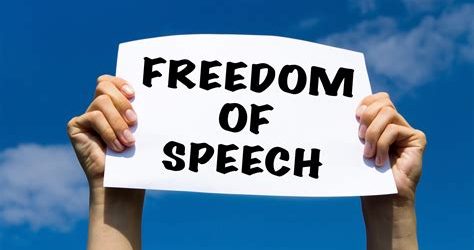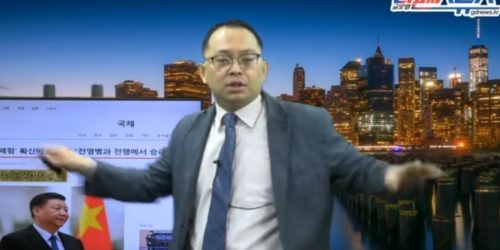South Korean Court Imprisons a Vietnam War Veteran and Retired ROK Army Colonel for Saying North Korea Was Involved in the Gwangju Uprising in May 1980
2023-1-17, Tara O
On January 12, 2023, the Korean Supreme Court upheld the Appellate Court’s decision to imprison Colonel Ji Man-won on defamation charges for saying North Korea was involved in the Gwangju / Kwangju Uprising in May 1980. Colonel Ji, who is in his 80s, started his prison sentence on January 16, 2023. The South Korean courts have become an active player in suppressing freedom of speech, which is guaranteed by the constitution of the Republic of Korea (ROK). The way the “justice system” handled his research and findings through “defamation” charges chills academic freedom, and the severe harassment he had endured in defending his work is contrary to basic human decency and the Universal Declaration of Human Rights.
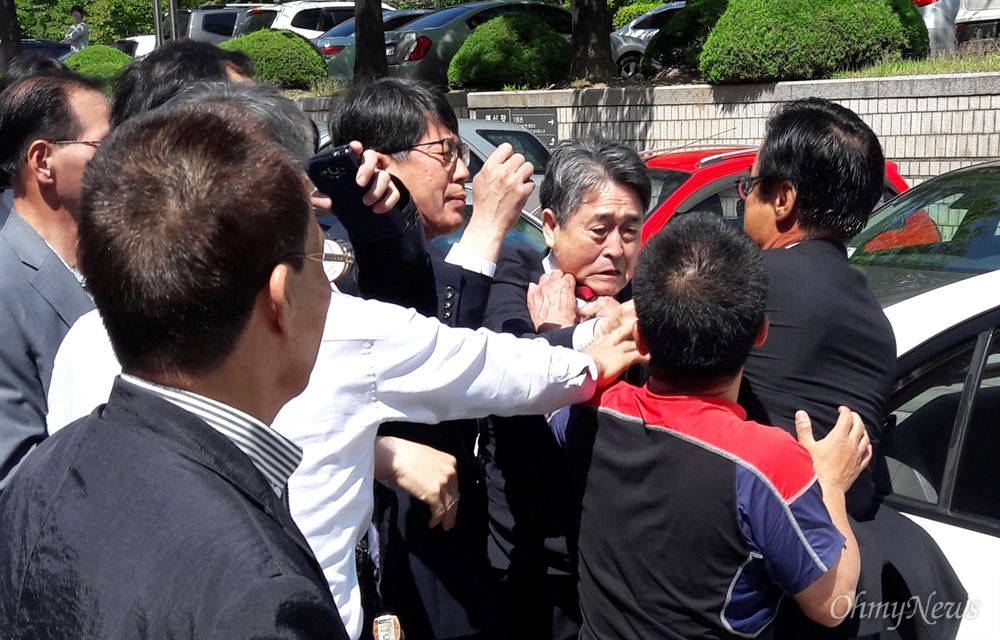
After graduating from the Korean Military Academy, Lieutenant Ji Man-won, an Artillery officer, entered the ROK Army in 1965. He served in Vietnam in the 1970s as a battery commander and retired from the Army in 1987 as a colonel. In late 1970s, he was selected to be a military exchange student at the Naval Postgraduate School in California, where he received his Master’s degree in Management and Doctoral degree in Systems Engineering (1980). After his retirement from the ROK Army, he was a columnist and analyst on national security. For decades, he has extensively researched the events that occurred in and around Gwangju in May 1980 and has become a specialist in this field.
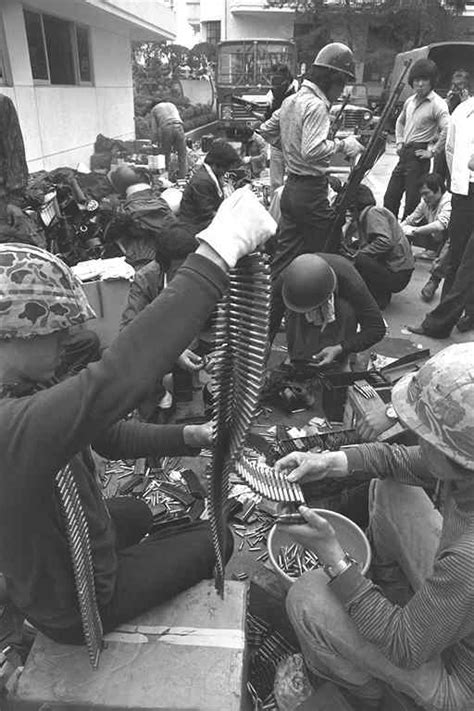
There were numerous activities that require surveillance and reconnaissance, special training, detailed planning, rigorous rehearsals, highly disciplined personnel, and leadership, such as ambushing the government convoys at a toll gate in Gwangju, stealing hundreds of military vehicles, including Armored Personnel Carriers (APCs), from a defense contractor, and stealing massive quantities of weapons from dozens of armories simultaneously, with all of these events occurring on the same day—May 21, 1980. Other activities included conducting multiple assaults on a prison (and subsequent firefight engagement with the government forces defending the prison) and rigging the provincial government building with 8 tons of TNT (enough to level a city block) were yet more activities. These are not activities that ordinary citizens can do. Colonel Ji’s extensive research and knowledge conducting military operations led him to conclude that North Korean special forces were involved in these activities.
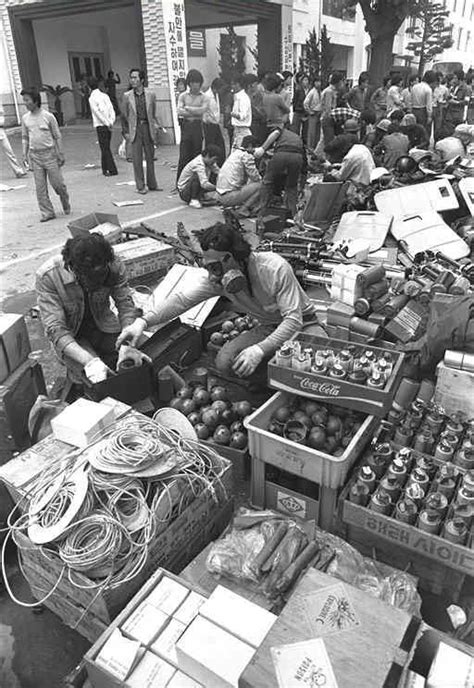
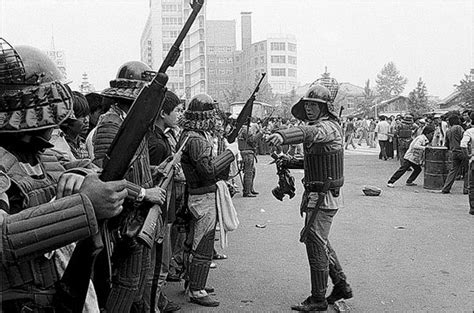
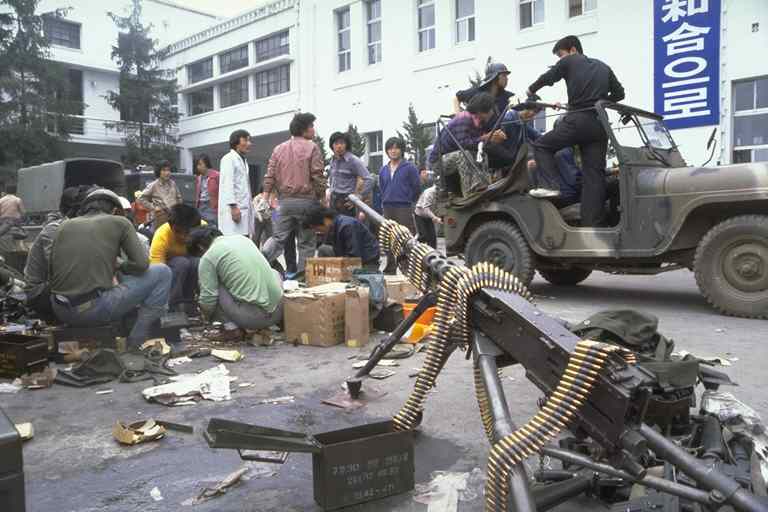
In 2021, the Democratic Party of Korea (Deobureo Minjoo Party) passed the so-called 5.18 History Distortion Punishment Act, which turns ordinary citizens into “criminals” and punishes them for “distorting the 5/18 democracy movement.” The punishment is up to 5 years in prison and/or a ₩50,000,000 ($42,000) fine. The enforcement of this law began on January 5, 2022.
Soon after the enforcement of the new law began, the police referred 11 people in their 20s to 40s for prosecution for “distorting 5.18 history” for their comments on social media and/or posting videos online. Apparently, they posted that 5.18 was a riot or that North Korean forces were involved, and to say such things is not only a taboo, but after the “5.18 History Distortion Punishment Act,” it is now a “crime” in South Korea.
As a result of certain political interests, the Gwangju Incident of May 1980 has become a subject that demands unquestioning acceptance and even worship. For a sense of how strange the 5.18 History Distortion Punishment Act is and the placing “5.18” on a pedestal overall, compare this to other historical events. There are those who deny that North Korea attacked South Korea, starting the Korean War, but there is no punishment for writing or making these sorts of statements in books, in schools, or at political events. There are those who deny that the Republic of Korea was born on August 15, 1948, and they deny its legitimacy as a country, but they are not charged with a crime. It is only when it comes to the May 1980 Gwangju Uprising, that people are jailed, fined, fired, and harassed for decades, for daring to question the narrative. These political interests demand that Gwangju must be referred to only as a “democracy movement” or else. Lawfare, specifically defamation or libel charges, has become a useful tool in silencing those who challenge the narrative. In South Korea, defamation or libel charges are both criminal and civil cases (defamation and libel are only a civil case in the U.S.),
In demanding unquestioned acceptance of the Gwangju Uprising as a “democracy movement,” the “May organizations,” along with the City of Gwangju, the prosecution and the court, charged Colonel Ji Man-won with various “defamation” charges:
- Violation of the Act on Promotion and Use of Information and Communications Network and Information Protection, etc. (Defamation) [정보통신망이용촉진 및 정보보호등에 관한법률위반 (명예회손)] (took effect on 2022-12-11)
- Defamation of a dead person (사자명예회손)
- Defamation (명예회손)
- Defamation by Publication (출판물에의한 명예회손)
It appears that every law pertaining to “defamation” was used in charging him. In the U.S., one cannot defame a dead person, because one cannot materially damage (for instance a loss of income due to defamation) a dead person, but in Korea, a dead person can be “defamed.” In addition to the regular “defamation” charge, the other defamation charges are methods of information dissemination, such as defamation by publication and defamation by posting his research findings on his website, System Club (http://www.systemclub.co.kr/).
Dr. Ji Man-won had his own YouTube Channel, but Google Korea deleted his entire channel, when the Korea Communications Standards Commission (KCSC 방송통신심의위원회 or 방심회 for short ), South Korea’s internet censorship body, pressured Google Korea to delete his YouTube Channel and videos from other YouTube channels in July 2020. KCSC wanted the videos censored for “distorting history” related to the Gwangju Uprising of May 1980 (referred to as “5.18”), because they mentioned North Korea’s involvement or presented details that are different than the narrative created after the creation of the 5.18 Special Laws in 1995 under Kim Yong-sam administration.
Another scholar was censored, but through a different method. Park Hoon-tak (박훈탁), professor at Uiduk University (위덕대학교), also talked about North Korean special forces involvement in Gwangju in May 1980 in his class. The 5.18 Commemoration Foundation (5.18기념재단), National Council on 5.18 Meritorious Persons (5.18 유공자 전국협의회), 5.18 Democracy Meritorious Persons’ Bereaved Family Association (5·18민주유공자유족회), Solidarity for Pohang Citizens’ Organizations (포항시민단체연대회), Disparaging the 5.18 Democratic Movement Daily Newspaper Daegu North Gyeongsang Countermeasures Committee (5.18민주화운동폄훼 매일신문 대구경북대책위), Uiduk University Student Association (위덕대학교 총학생회), and other 5.18-related organizations strongly pressured Uiduk University to fire the professor, and Professor Park was indeed fired.
As Dr. Ji goes to prison on 16 January 2023, the South Korean court system has been used yet again to punish an innocent South Korean citizen. Special interest groups praised the decision. It is sad and shameful that suppression of freedom of speech and oppression of human rights is occurring in South Korea, especially in the name of the Gwangju “democracy movement.”
